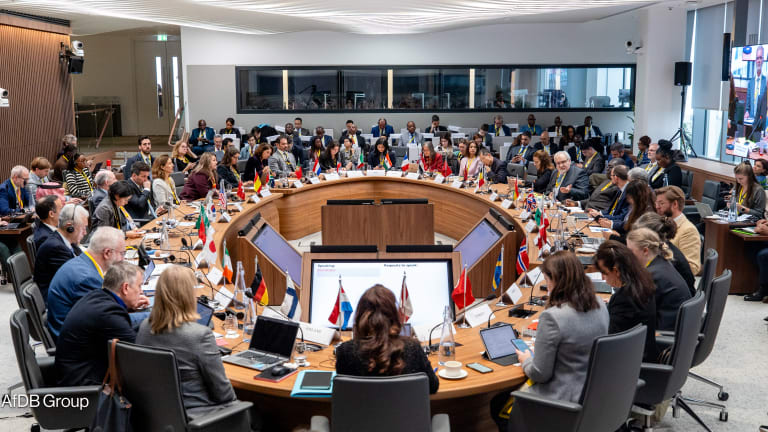On a day when Guinea should have been celebrating 51 years of independence, the country mourned an estimated 157 individuals. They were killed during a protest rally in the nation's capital four days earlier on Sept. 28.
President Barack Obama addressed Ghanaian parliamentarians in July 2009 in what many heralded as a historic visit. While he spoke in Accra, the entire world was listening in.
"History offers a clear verdict: governments that respect the will of their own people are more prosperous, more stable, and more successful than governments that do not," Obama said. "This is about more than holding elections - it's also about what happens between them."
With the recent killing of protestors in Conakry, Obama's words have a telling ring. Democracy really is about what happens between elections.
The demonstration was staged in protest of reports that Guinea's military leader, Capt. Moussa Dadis Camara, might participate in the country's Jan. 2010 election – something he explicitly said he wouldn't do when he staged a coup in December 2008.
History seems to have repeated itself two-fold: first in the seizure of power by Camara after his predecessor's death, and second, in the protest-related massacres of Sept. 28. In Feb. 2007, a similar death toll was recorded following military's response to nationwide protests.
Not much has changed in Guinea since 2007. With about half of its population living on less than a dollar a day, the country is yet to reap the benefits from its status as the global leader in bauxite exports.
The United Nations human development index for 2009 ranks Guinea as 170th, making it one of the 15 worst places to live in the world.
According to the U.S. Committee for Refugees and Immigrants, there are about 28,100 refugees in Guinea from neighboring Sierra Leone and Liberia. Even as reconstruction efforts are under way in Sierra Leone and Liberia, the situation is still fragile.
Should tensions escalate in Guinea and spill over into these countries, development efforts in the region will be stalled. Following the December 2008 takeover, the U.S. threatened to suspend aid to Guinea unless democratic civilian rule was restored, while the European Union maintained its aid freeze against the African country. France has already cut military aid to its former colony and is rethinking its bilateral assistance to Guinea.
International bodies like the African Union are likely to impose sanctions should Camara ignore calls to adhere to the democratic process. These sanctions could further stretch purse strings that are already tight. Ultimately, the effects of reduced development assistance will be felt by the average Guinean and refugees from neighboring Liberia and Sierra Leone.
As the international community awaits the results of mediation efforts by Burkina Faso President Blaise Campaore, one thing is clear: Democracy and development should go hand in hand.








